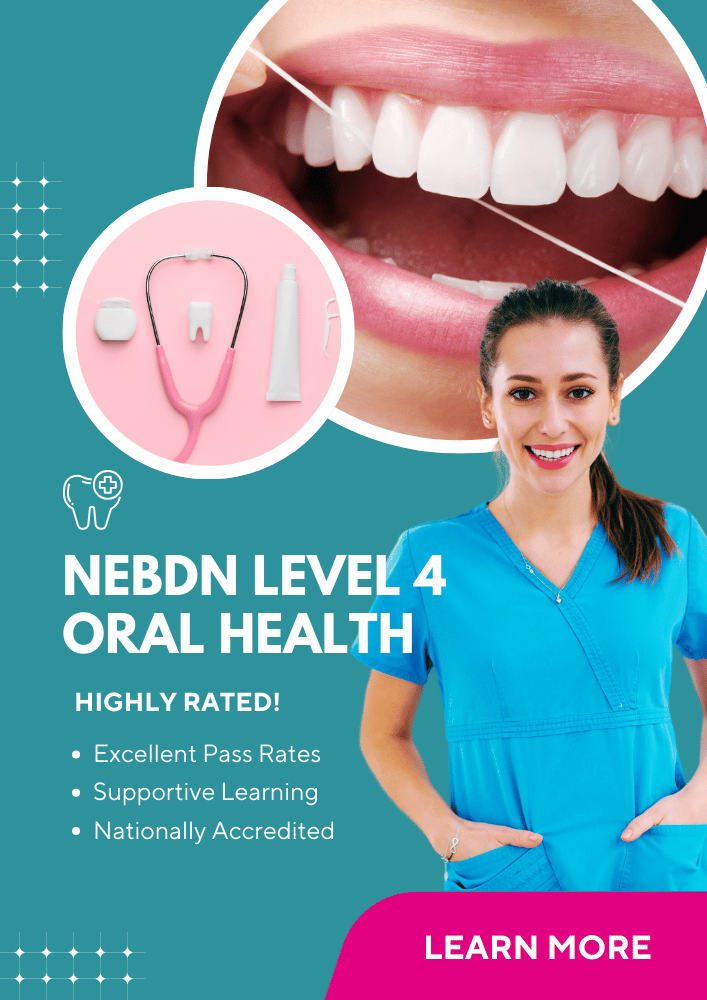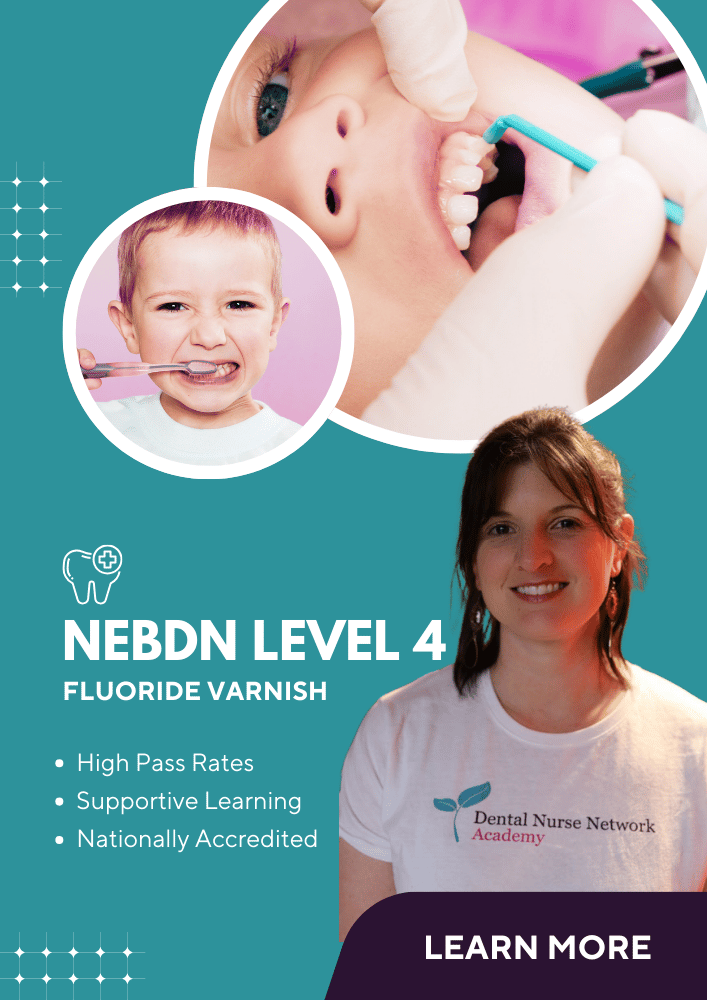 You've done it! After months (or even years) of hard work and dedication, you've passed your dental nursing exam, and you're ready to start your career. As a qualified dental nurse, it's now essential to understand the next steps to establish your professional standing, grow in your career, and maintain your skills and knowledge. Here’s a comprehensive guide to help you navigate the path ahead.
You've done it! After months (or even years) of hard work and dedication, you've passed your dental nursing exam, and you're ready to start your career. As a qualified dental nurse, it's now essential to understand the next steps to establish your professional standing, grow in your career, and maintain your skills and knowledge. Here’s a comprehensive guide to help you navigate the path ahead.
Apply for Registration with the General Dental Council (GDC)
Your first official step is to register with the GDC. As a dental nurse, you must be registered with the GDC to work legally in the UK. This ensures that you are recognised as a qualified and competent dental professional. The application process involves providing proof of your qualifications, a completed application form, and the appropriate registration fee.
See the application guidance here.
Apply for registration online here.
Tip: Don't delay this step! The sooner you're registered, the sooner you can start applying for dental nursing jobs or continue working legally if you're already employed as a trainee.
Ensure You Have Indemnity Insurance
As a dental professional, you are required by law to have indemnity insurance. This protects both you and your patients in case something goes wrong during treatment. If your practice provides you with indemnity cover, ensure you have a copy of your own policy and don't just take their word for it. It's essential to understand the details of your cover to ensure you’re fully protected. We have more information available here and offer a free verifiable CPD course here on indemnity to help you navigate this important area
If you are covered by your practice’s indemnity insurance, check that this will cover you for Fitness to Practise hearings; it is a stressful and complex time if you find yourself before a Fitness to Practise hearing, and a number of dental nurses end up being unrepresented as the cover they have in place does not provide support in such situations.
Start Planning Your Continuous Professional Development (CPD)
As a dental nurse, keeping your skills up to date through CPD is crucial. We recommend you complete a minimum of 5–10 hours per year. You must complete a minimum of 10 hours every 2 years, but we recommend you spread them over the two years, as many nurses had problems in the last cycle where they had completed some in one year but not another. Verifiable CPD refers to structured learning that is planned, evaluated, and documented and evidenced by certificates such as attending courses or conferences, or completing e-learning modules. Click here for more information on CPD and the consequences of non-completion.
You’ll need to maintain a Personal Development Plan (PDP), which outlines your learning goals for the year. You should regularly update your PDP as you complete your CPD, reflecting on how your learning has impacted your practice. It's not just about meeting the minimum hours; it's about actively growing in your role and keeping pace with industry changes. Click here for more information about creating a PDP.
Think About Your Career Development
Now that you've passed your exam, it's time to start thinking about where you want your career to go. Dental nursing offers many avenues for growth, so take the time to reflect on your goals. Are you interested in developing your skills further in a particular area of dental nursing, such as orthodontics or oral surgery? Do you want to pursue additional courses to move into practice management or teaching?
Here are a few pathways you might consider:
- Extended Dental Nurse Course: Gain qualifications in a specific field such as radiography, fluoride varnish application, oral health education, or sedation. Learn more here.
- Practice Management: With further study, you can progress into a managerial role, overseeing the day-to-day operations of a dental practice.
- Teaching or Assessing: If you’re passionate about sharing your knowledge, consider becoming a dental nurse tutor or assessor.
Remember, career development is an ongoing process. The more you invest in your learning, the more opportunities will come your way.
Finding the Right Dental Nursing Job
Securing a good dental nursing job is not just about earning a paycheck – it's about setting yourself up for success. Your job history will follow you throughout your career, so it’s important to choose a workplace where you can grow, develop your skills, and build a solid professional reputation.
Here are some tips for finding the right job:
- Look for supportive work environments: You want to work somewhere that values your development as a dental nurse. Ask about opportunities for CPD and mentorship during your interviews.
- Focus on your CV: A strong CV that highlights your skills, experience and enthusiasm will make a big difference when applying for jobs.
- Stay open to learning: Even after you land a job, continue seeking new learning opportunities. A proactive attitude toward professional growth will make you stand out as an employee.
When you find a good dental job, it’s equally important to be a good employee. Show commitment to your team, be punctual, maintain professionalism, and consistently aim to improve your skills. These qualities will ensure you have a strong professional history that future employers will value.
Stay Connected to the Dental Nursing Community
Your journey as a dental nurse doesn’t stop at registration – it’s essential to stay connected to the broader dental community. Networking with other dental professionals, attending events, and being part of professional groups can significantly enhance your career.
Keep these networking opportunities positive, however; avoid getting drawn into social media posts that bring too much negativity to your role.
Stay Up-to-Date with Changes in Dentistry
Dentistry is constantly evolving, with new techniques, technologies, and regulations regularly being introduced. It’s essential to stay informed and keep up with these changes to maintain high standards of care. Make sure you are regularly reading dental publications, attending courses, and participating in dental events. Being proactive about your learning not only benefits your patients but also ensures you remain a valuable asset to your practice.
Fact-Check Information and Rely on Credible Sources
In today’s digital age, there’s a lot of misinformation circulating, especially on social media. I’ve seen plenty of false information shared among dental professionals, and it’s critical that dental nurses learn to fact-check the information they receive. Always verify details with credible, official sources like the GDC rather than relying solely on second-hand advice. The GDC and other professional bodies provide clear, reliable guidance, so make it a habit to go directly to the original source for any updates, regulatory changes or professional advice.
Key Resources
GDC Indemnity Guidance: Understand the legal requirements and recommendations for indemnity as a dental professional. Ensure your cover meets the necessary standards.
GDC Standards for the Dental Team: These are the ethical guidelines that every dental professional must follow. They provide clear expectations for behaviour, patient care and professional responsibilities.
GDC Scope of Practice: Familiarise yourself with the specific tasks and duties you are permitted to carry out as a dental nurse. This is crucial to ensure you’re practising safely within your role.
HTM 01-05 (Decontamination in Primary Care Dental Practices): This document outlines the essential protocols for maintaining cleanliness and preventing infection in dental settings. Following these guidelines ensures patient safety and compliance with regulatory standards.
CPD Requirements and Guidance: Regularly review the GDC's guidelines for CPD to ensure you’re meeting the necessary requirements and focusing on relevant, verifiable learning.
Continue Your Professional and Personal Growth
As you settle into your new role, don’t lose sight of the importance of ongoing growth, both professionally and personally. Take time to reflect on your experiences, actively seek feedback, and set new goals for your development. Whether you’re aiming to develop and grow within your current practice or want to explore other roles within the dental profession, continual self-improvement is the key to better job opportunities and a fulfilling career.
By following these steps, you’ll ensure that you not only maintain your qualifications but also continue to grow as a professional, making yourself an asset to any dental practice.
All the best in this exciting new phase of your career! Stay connected, stay motivated, and continue learning.



